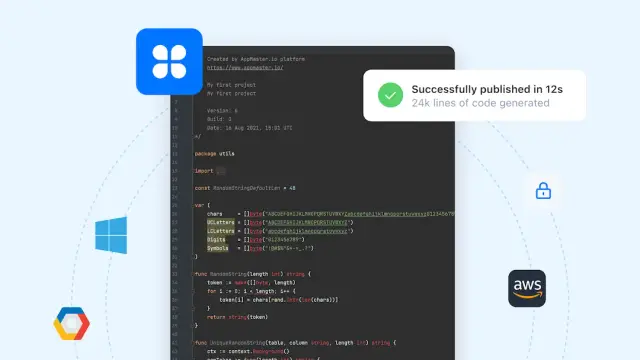Custom CRM and GDPR Compliance: What You Need to Know for Your Business
Explore the intricacies of Custom CRM systems and GDPR compliance for businesses, and learn how to ensure a secure and effective implementation.

Understanding Custom CRM Systems
A custom CRM (Customer Relationship Management) system is a tailored software solution designed to meet the specific needs of a business. Unlike off-the-shelf CRM products, custom CRM systems provide improved functionality, features, and integrations that cater to the unique requirements of an organization. Custom CRM solutions enable businesses to better interact with their customers and optimize their sales, marketing, and customer support processes.
Developing a custom CRM system allows organizations to:
- Customize the Solution: Tailor the CRM to meet specific business needs, providing a competitive advantage over generic systems.
- Enhance Integrations: Connect the CRM with other internal or third-party systems, enabling seamless data exchange and collaboration across multiple departments.
- Improve Scalability: Adapt the CRM to support your organization's growth and changing needs, without limitations from pre-built products.
- Streamline Functionality: Craft the CRM to focus on essential features and tools for your business, rather than being overwhelmed with unnecessary options that you may not require.
However, as with any software solution that enables businesses to access, process, and store personal data, custom CRM systems must adhere to various data protection guidelines, including the General Data Protection Regulation (GDPR).
GDPR Challenges for Custom CRMs
The GDPR is an EU regulation that aims to provide rigorous privacy and data protection guidelines for organizations handling personal data of EU citizens. While originating in the European Union, these regulations apply to businesses worldwide if they provide services or products to people in the EU.
Compliance with the GDPR is vital for companies developing custom CRM systems, as failure to meet the requirements can result in substantial fines and damaged reputations. Some challenges associated with custom CRMs and GDPR compliance include:
- Data Architecture Complexity: Custom CRM implementations often involve complex data architectures that make it challenging for companies to ensure GDPR compliance. Developers must identify and track personal data throughout the CRM system and adhere to data protection principles, including data minimization, accuracy, and storage limitation.
- Third-Party Integrations: When connecting custom CRM systems to third-party services, businesses must ensure that these integrations operate in accordance with GDPR guidelines. Partnering with a third-party that is non-compliant can lead to severe consequences for both organizations.
- Feature Development: The development of new features within custom CRM solutions might inadvertently lead to non-compliant practices, such as inadequate protections surrounding personal data storage or use.
- Data Subject Rights Management: Ensuring that custom CRM systems provide data subjects with the ability to exercise their rights under GDPR is a major challenge. For instance, organizations must accommodate requests for access, rectification, erasure, and data portability while maintaining data quality.
- Privacy-First Approach: Fostering a culture and mindset that prioritizes privacy and data protection is essential for organizations building custom CRM systems. This mindset should permeate all stages of software design and development, as well as day-to-day business processes.

Key Aspects to Address for GDPR Compliance
To ensure GDPR compliance in custom CRM systems, organizations should address the following key aspects:
- Risk Assessment & Data Protection Impact Assessment (DPIA): Conducting a thorough risk assessment and DPIA during the design and implementation phase can help organizations identify potential risks and implement strategies to reduce their impact. By carefully considering potential vulnerabilities and threats along with countermeasures, companies can more effectively build compliant CRM systems.
- Privacy by Design & Privacy by Default: Integrating privacy and data protection measures into the core design of a custom CRM system is essential for GDPR compliance. This signifies taking a proactive approach to privacy, ensuring that data protection safeguards are embedded into every element of the CRM design, development, and deployment process.
- Data Minimization: Custom CRM systems should collect and store only the minimum amount of personal data necessary to achieve their business purposes. By adhering to the principle of data minimization, organizations reduce the risk of non-compliance and potential exposure during data breaches.
- Access Controls & Encryption: Implementing appropriate access controls and data encryption measures can help protect personal data from unauthorized access, theft, or tampering. Access controls and encryption should be applied consistently throughout the custom CRM system to maintain the confidentiality, integrity, and availability of personal data.
- Data Subject Rights Management: Providing data subjects with an effective mechanism to exercise their rights under the GDPR is crucial. This includes timely responses to requests for data access, rectification, erasure, and data portability while maintaining data quality. Integrating processes and technologies that facilitate the fulfillment of these requests is a vital aspect of building GDPR-compliant CRM systems.
- Data Breach Response & Reporting: Establishing a comprehensive data breach response process is an essential part of GDPR compliance. Companies must be prepared to quickly detect, contain, and remediate data breaches while adhering to appropriate notification and reporting requirements under the GDPR.
By addressing these key aspects, organizations can develop custom CRM systems that are both highly functional and GDPR compliant, protecting their customers' personal data while mitigating the risk of significant financial and reputational consequences.
Data Architecture and Privacy by Design
One of the core principles of GDPR is Privacy by Design, which requires integrating privacy and data protection into the design and development process of software, products, and services, rather than as an afterthought. A custom CRM solution that adheres to GDPR regulations needs to embrace the Privacy by Design approach and ensure that its data architecture is optimized for GDPR compliance. Here are some important considerations for data architecture and Privacy by Design in a custom CRM system:
- Data Minimization: Collect and store only the minimum amount of personal data necessary for the system's intended purpose. This practice not only helps in reducing security risks but also helps in achieving GDPR compliance by limiting the scope of personal data being processed.
- Data Classification: Proper data classification is essential for understanding the different types of data being collected, stored, and managed within the CRM system. By classifying data based on its sensitivity or privacy requirements, businesses can easily implement appropriate access controls and encrypt sensitive information to protect it from accidental or malicious disclosure.
- Data Flow Mapping: Understanding how personal data flows within the CRM system and across its various integrated components is crucial for ensuring GDPR compliance. Data flow mapping allows businesses to identify potential chokepoints or vulnerabilities where data might be exposed to unauthorized access.
- Access Controls: Implementing strict access controls is necessary to ensure that only authorized personnel have access to personal data stored within the CRM system. Role-based access controls help limit exposure and prevent potential data breaches.
- Data Retention: GDPR mandates that personal data should not be stored for longer than necessary. Establishing a data retention policy, which defines how long customer data should be stored and when it should be deleted, helps businesses comply with these requirements and minimize the risk of data breaches.
- Data Encryption: Encrypt personal data stored within the CRM, both in transit and at rest, to prevent unauthorized access. Employing strong encryption algorithms can help businesses maintain GDPR compliance and protect their customers' sensitive information.
Tools and Techniques for GDPR Compliance
There are several tools and techniques that businesses can use to ensure custom CRM systems are GDPR compliant. Some of these tools and techniques include:
- Data Inventory Software: A data inventory tool allows businesses to systematically discover, catalog, and manage personal data stored within (and external to) their custom CRM. Understanding all of the personal data in the organization's possession, as well as where it resides, is crucial for achieving GDPR compliance.
- Data Protection Impact Assessments (DPIAs): Conduct DPIAs to evaluate the privacy risks of processing personal data within the CRM system. A DPIA helps organizations identify and mitigate these risks early in the development process and implement privacy controls that ensure GDPR compliance.
- Pseudonymisation and Anonymisation: Employ pseudonymisation and anonymisation techniques to obfuscate personal data and reduce the risk of re-identification. This can aid in meeting GDPR requirements concerning data protection and confidentiality while enabling the use of data for analytics or other non-privacy-invasive purposes.
- Regular Audits and Training: Conduct regular audits of your custom CRM system to ensure it remains GDPR compliant and identify any compliance gaps or vulnerabilities. Additionally, provide ongoing training for staff members who handle customer data, ensuring they remain informed about GDPR requirements and applicable privacy best practices.
AppMaster: A No-Code Platform for Custom CRM and GDPR
While ensuring custom CRM GDPR compliance can be a complex process involving data architecture, privacy controls, and appropriate tools and techniques, using a no-code platform like AppMaster can significantly simplify the process. AppMaster is a powerful no-code platform for creating backend, web, and mobile applications. It provides built-in templates, workflows, and security measures that adhere to GDPR regulations.

With AppMaster, businesses can build custom CRM systems with integrated GDPR compliance capabilities, streamlining the development process and reducing potential risks. Here's how AppMaster can help ensure custom CRM GDPR compliance:
- Visual Data Model Creation: Through its visual data modeling interface, AppMaster allows businesses to define the data architecture, relationships, and structure of their custom CRM system. This simplifies compliance processes by providing a clear understanding of how personal data is stored and processed within the system.
- Business Logic Design: With AppMaster's Business Process Designer, organizations can visually create and manage business logic components of their CRM system, ensuring that privacy controls and GDPR requirements are seamlessly integrated into the application's design.
- API Management: AppMaster simplifies the integration of APIs for custom CRM systems, ensuring data privacy and security during data transfers while adhering to GDPR requirements around data protection and encryption.
- GDPR-ready Templates: Leverage built-in GDPR-ready templates and pre-built components available on the AppMaster platform to speed up the development process and ensure best practices for privacy controls and data protection are followed from the start.
In conclusion, achieving custom CRM GDPR compliance requires a thorough understanding of the data architecture, Privacy by Design principles, and using the right tools and techniques. AppMaster'sno-code platform offers a streamlined solution for businesses to create custom CRM systems that are fully GDPR compliant, reducing risks and ensuring customer data is protected throughout its lifecycle.
FAQ
A custom CRM system is a tailored customer relationship management software designed to meet the specific needs of a business, providing improved functionality, features, and integrations that may not be available in off-the-shelf CRM products.
The General Data Protection Regulation (GDPR) is a European Union regulation that governs the handling and processing of the personal data of EU citizens, providing robust privacy and security guidelines for organizations.
Custom CRM systems often involve complex data architectures and integrations, making it challenging for businesses to ensure all customer data is handled in accordance with GDPR requirements.
Key aspects for GDPR compliance include Privacy by Design, risk assessment, data protection impact assessment, data minimization, access controls, encryption, data subject rights management, and data breach response.
Privacy by Design is a GDPR principle that calls for the seamless integration of data privacy and security measures into the design and development process of software, products, and services.
Yes, a no-code platform like AppMaster can assist in creating custom CRM systems that are GDPR compliant by providing built-in templates, workflows, and security measures that adhere to the regulations.
AppMaster is a powerful no-code platform for creating backend, web, and mobile applications with advanced features such as visual database schema creation, business logic design, and API management. It simplifies the development process while ensuring GDPR compliance.
Using tools like data inventory software, pseudonymisation, anonymisation, and conducting regular audits and training can significantly contribute to GDPR compliance for custom CRM systems.





